Business finance news: The finance sector regulatory environment
Date
07 February 2024
Share

Many businesses will welcome a change in government to one seen as more business friendly. Within the financial sector we expect to see the following impacts in the short term:
Many businesses will welcome a change in government to one seen as more business friendly. Within the financial sector we expect to see the following impacts in the short term:
- A rollback of some of the CCCFA changes implemented under the previous government. The finance sector supports the wider intent of the CCCFA – to protect vulnerable borrowers from predatory lending. However, there is wide frustration that the prescriptive requirements rolled out in recent years have complicated access to capital for good quality borrowers, and significantly increased processing time and costs for lenders. Ironically, this has forced a portion of borrowers to more expensive funding options, where they either did not qualify for, or did not have the time to satisfy, main bank assessment criteria under the CCCFA rules. While the CCCFA specifically targets consumer lending, this has impacted business lending, particularly for small business borrowers. The new Minister of Commerce and Consumer Affairs Andew Bayly has announced intentions to roll back these changes, particularly the prescriptive and contentious affordability assessments that required detailed analysis of individual borrower expenditure. While detail is still to come, we would welcome a more sensible approach here.
- The introduction of Debt to Income (“DTI”) ratio as a secondary tool alongside Loan to Value Ratio (“LVR”) restrictions for bank mortgage lending. This is unlikely to impact residential mortgage lending at current interest rates, as borrowers will fail affordability tests based on current test interest rates before hitting DTI limits. However, should we see very low interest rates in the future, DTI will act as a limiting factor in house price increases. New Zealand has long been an outlier in not having DTI as a tool to restrict mortgage lending.
Different segments of the financial market, and individual lenders, react differently to legislation. One impact of tightening CCCFA regulations in recent years has been to make the main banks more complex to obtain business funding from, relative to non-bank lenders. This applies to both property and asset finance, where banks have tended to add a CCCFA assessment of personal debt obligations on top of an assessment of a business’s capacity to borrow. This gap may narrow if the CCCFA requirements are walked back. Our team works closely with a range of lenders, and we are well placed to guide our clients through the process with both bank and non-bank lenders. In any transaction we will consider factors such as speed & ease of obtaining funding, alongside product, funding costs, and security requirements.
Similar Posts
12 January 2026
Asset & Equipment Finance LVRs
Purchasing new vehicles, machinery, or equipment often raises one key question: how much deposit is required? The answer depends on more than just the asset. It comes down to LVRs (Loan to Value Ratio's), structure, and lender, policy & appetite. This article explains how asset and equipment finance LVRs work in New Zealand, and why advice matters.

27 November 2025
The Bottom of the Cycle? What the OCR Cut Means for 2026
Shifting interest rates are reshaping the way businesses finance equipment, vehicles and growth. Understanding these changes can help you make smarter, better-timed funding decisions.


Page Links
Contact us
Finance New Zealand Limited L11 BDO Tower, 19-21 Como Street, Takapuna, Auckland 0622 PO Box 65164, Mairangi Bay 0754 T: (09) 222 0320E: info@financenz.co.nzMember of


Proud Sponsors of Auckland Rescue Helicopter Trust
Copyright Finance New Zealand Ltd 2026



